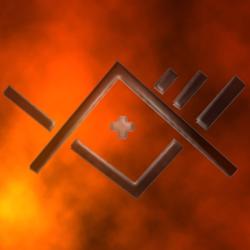“In metric, one milliliter of water occupies one cubic centimeter, weighs one gram, and requires one calorie of energy to heat up by one degree centigrade—which is 1 percent of the difference between its freezing point and its boiling point. An amount of hydrogen weighing the same amount has exactly one mole of atoms in it. Whereas in the American system, the answer to ‘How much energy does it take to boil a room-temperature gallon of water?’ is ‘Go fuck yourself,’ because you can’t directly relate any of those quantities.” ― Josh Bazell, Wild Thing
I’m always disappointed that megameter isn’t a common word. People will say “one thousand kilometers” instead of just “one megameter”.
Make it a gigameter for my 1000 megameter needs
I’m a fan of light nanosecond, which works out to roughly 30 cm.
People will say “one thousand kilometers”
Will they though? I don’t talk about distances that large anywhere near often enough to really need a shorthand for it, personally. Had to even look up what things are approximately 1000km apart to even know what to imagine it as (it’s about the distance between Paris and Berlin).
Is kibimeter a technically allowed measurement? That would be fun!
Yes, the same way that kiloinches is technically allowed.
I’m more disappointed the world renamed one thousand million from milliard to billion.
“the world”?
If you came over to the other side of the pond, you’d find that most of Europe is still using milliard, billiard, trilliard etc.
Anglocentrism strikes again!
I think that’s one thing that’s actually fine about the English language though. Constantly switching between something ending with “ion” to “iard” instead of just counting up doesn’t make much sense to me personally.
Million (1A), Milliard (1B), Billion (2A), Billiard (2B) seems odd compared to Million (1), Billion (2), Trillion (3), Quadrillion (4)
I suppose the upside is that you don’t have to learn as many prefixes, but it’ll take another few years of inflation and wealth centralization (at least with currencies like the Euro, Dollar, or Pound) until Quadrillion is relevant in the financial sector and Mathematicians generally use letters. I suppose it makes other natural sciences a tiny bit easier, but there it’s usually written in scientific notation anyways.
The million-milliard system means a billion has double the zeroes compared to million, trillion has triple the zeroes, etc. In the English system, a quadrillion has 15 zeroes, so 4 times 3 plus 3? A quadrillion should have 4*6=24 zeroes.
I must admit I still don’t see the point. Whether it’s double/triple/quadruple of a million or just 3*n+1 doesn’t seem to matter much. Of course it’d be better if a “thousand” was just called a “million” then, since that’d remove the +1, but the million milliard system doesn’t seem to have any notable advantages otherwise, especially considering every “iard” step is a .5 one, which isn’t much cleaner.
1,000 -> 3x0+1 zeroes
1,000,000 -> 3x1+1 zeroes
1,000,000,000 -> 3x2+1 zeroes
vs
1,000,000 -> 1x6 zeroes
(1,000,000,000 -> 1.5x6 zeroes)
1,000,000,000,000 -> 2x6 zeroes
(1,000,000,000,000,000 -> 2.5x6 zeroes)
1,000,000,000,000,000,000 -> 3x6 zeroes
My 2 main annoyances with the metric system:
First: The SI unit for mass is the kilogram. That’s fucking stupid. A kilogram is 1000 grams, the base unit for something can’t be “1000 of this other thing”. Because the kilogram is the SI unit for mass, that means that a gram is, by definition, 1/1000th of a kilogram. The stupidity, it burns!
The second one isn’t really an issue with the metric system, it’s more when people are almost using the metric system then fuck it up, like the “Watt Hour” for measuring energy use. You know, there’s already a way of measuring energy use: the “Watt Second”, also known as “The Joule”

I am glad someone else has noticed this. Why is my TV’s power consumption reported in kWh/1000 hours?
Because your power is billed in kWh. Figuring out the kWh cost of a 77 watt TV is straight forward, but a lot of consumer labeling standards are about quick and easy side by side comparisons as opposed to perfect application of units. Easiest way to give a comparison that’s accurate enough and doesn’t involve odd numbers is to convert that way.
Whilst this answer is correct, it’s not entirely accurate, because it is dismissive of the root cause. The logical follow-up question is: “Why is energy billed in kWh?”. If the question/cycle answer continues down this line there will probably be an answer like “because <some person> had to make a decision once, and they chose this because of <some reason>, and now we’re all stuck with it because of convention.”
Anyone who doesn’t understand what joules are probably doesn’t understand what kWh are either. If the billing convention (and every other power consumption label) used joules (of course MJ or GJ) instead, then most people would just accept that as the unit of billing and measurement, and those who understand what the units mean would have an easier time of it.
Well, the follow up answer is pretty straightforward.
Selling power by the megajoule is silly. You want a unit that puts time in the name and the unit of power that’s on appliances. If I run a 35 watt fan for an hour I know I’ve used 35 watt hours of energy. Or I can say I’ve used 126 kilojoules.It’s not highschool. You don’t lose points for not reducing your answer all the way. The goal is to describe reality clearly, not to use the most concise units of measurement.
If I’m running a powerplant I need to know how many joules I get from my fuel and what my customers need and what my generators can deliver. The customer needs to know the efficiency of their appliances, and how how much that costs them. These are the same thing, but life isn’t made simpler by having them be the same unit.
it’s more when people are almost using the metric system then fuck it up, like the “Watt Hour” for measuring energy use.
Energy is just so important to physics and engineering that it will be measured in whatever unit is most convenient to convert in that particular context: joules as the SI unit, watt hours for electricity usage, calories for certain types of heat or food energy calculations, electron volts in particle physics, equivalent tonnes of TNT for explosion energy, things like that.
I don’t believe that “watt hours” are more convenient than joules, especially when they’re not just watt hours but kilowatt hours or megawatt hours. At that point just use megajoules or gigajoules.
I can understand things like eV where the scale is so different that you’d have to constantly use tiny and unusual prefixes. But, for most other things like calories, it’s just tradition rather than a well thought out reason.
I don’t believe that “watt hours” are more convenient than joules
Clearly you’ve never had to do the calculations where these things come up, where hours are a much more common unit of measure for time than seconds, so that multiplying and dividing by time is easier when working with hours.
The only positive thing I see about imperial is that things are easily divisible by 3 and 6, but that’s about it. Then again, if doing the same with metric, you’re usually fine rounding to the nearest millimetre, and if that isn’t accurate enough, it’s probably not supposed to be done by hand anyway.
It’s funny how the biggest argument for metric is that it’s so accurate but in real life use it degrades to “close enough”. My main problem with metric is that I can’t get my pencil that sharp.
I wish we had a metric inch because the fuzziness can be useful.
“How small do you need these veggies diced?”
“2.5cm ish” vs. “about an inch”I feel like the implied margin of error is much larger for inches, which make them useful for many things where precision isn’t necessarily desirable (hemming, wargaming, moving furniture, etc…). If I’m wargaming having a limit on rounding is useful (half an inch - either round up or down), assuming I’m playing at a scale that uses inches.
Feet I have no use for, with one exception - adult human height between 5’ 2" and 6’ 2". There I find metric too precise (whereas to the nearest inch accounts for variance in sole thickness, hair volume, etc.).
I wasn’t raised on imperial (and I’m baffled that people younger than me in the UK still talk about stones. Sixteen stone is fat, sure, but I’ve no idea how fat if not told in kilos) but I find inches to have their uses.
Also miles for cars - because common speeds are ~60 and ~30 mph so a road sign effectively gives the time to arrival (e.g. 13 miles on a motorway = about 13 minutes). I don’t use them for actually measuring distance on a map but they’re handy when driving.
Why not say ‘2-3 cm’ for the first one? Or ‘a couple centimeters’? It doesn’t feel too different from saying ‘about an inch’ to me
Taking it even further who the fuck uses inches or cms for vegetable cutting measurements anyway, it’s like, one or two fingers thick
Do you want to develop imperial measurements? Because that’s how you invent imperial measurements. Next thing you know you’ve got a cup that’s really good for measuring liquids and a couple spoons you like to scoop with…
Recipes I use regularly say “2cm chunks” and the like. I’ve never seen one measure in fingers.









